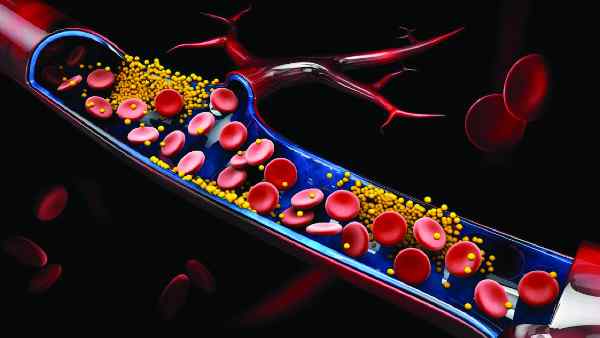The leading cause of death worldwide is heart disease and when it comes to the most profound risk factors of heart disease, cholesterol comes at the top. Many people are grappled with heart disease due to the high levels of cholesterol in their bodies. From 1990 to 2020 millions of deaths were reported due to heart disease after being affected by cholesterol. People are consistently falling into the cholesterol trap and losing their lives due to heart disease caused by it.
While cholesterol, in moderation, is helpful to the body, high levels of it can contribute to serious heart problems like clogging of arteries. According to various doctors, having high cholesterol solely is not a cause of heart problems, but when coupled with other risk factors, it can cause serious damage to the heart. Let’s learn more about the cholesterol trap and the methods to avoid it to maintain heart health below.
Understanding Cholesterol: The Good and the Bad
There is a preconceived notion among people that cholesterol is inherently bad. However, that is not actually the case. There are various activities of the body for which cholesterol is necessary, for example, the production of cell membranes, hormones, and vitamin D. It can also come in handy in building and maintaining the structure of the brain cells. Now, let’s try to understand the two types of cholesterol.
Types of Cholesterol
There are two types of cholesterol that we study in the medical realm:-
- Low-Density Lipoprotein (LDL): LDL is often referred to as bad cholesterol, it carries cholesterol from life to various parts of the body. If there is too much LDL in the bloodstream, it can lead to the formation of plaque in the arteries which can put a strain on the heart muscle.
- High-Density Lipoprotein (HDL): It is often termed good cholesterol. It removes extra cholesterol from the bloodstream and transports it back to the liver. If the level of HDL is high in the bloodstream, it is considered good for the heart.
The Cholesterol Trap: High LDL and Its Consequences
When the levels of Low-Density Lipoprotein or LDL cholesterol become high in the bloodstream, it can lead to a condition known as hypercholesterolemia. The excess LDL cholesterol gets deposited in the arteria causing atherosclerosis which is characterized by narrowing down of the arteries and is a major risk factor for heart disease. If this plaque breaks down or ruptures then it leads to blood clot formation.
This blood clot formation leads to myocardial infarction, which in normal language is termed heart attack. Therefore, prevention of high LDL cholesterol levels in the bloodstream is necessary.
The consequences of high LDL cholesterol are not limited to heart attacks alone. It can also lead to other cardiovascular problems, including stroke, peripheral artery disease, and angina (chest pain). In some cases, cholesterol leads to cardiovascular conditions that result in monomorphic ventricular tachycardia, ventricular flutter , wpw syndrome , which are dangerous arrhythmias (irregularities in heart rhythm). Heart diseases like arrhythmia and hyperkalemia and structural abnormalities are very common in humans nowadays due to high cholesterol levels and other unhealthy lifestyle aspects.
How to Avoid the Cholesterol Trap and Maintain Heart Health
Avoiding bad cholesterol (LDL) requires unwavering dedication. For this, you will have to revamp your lifestyle and make many alterations to many of your activities:-
Dietary Changes: Our diet is mainly responsible for the elevation of LDL cholesterol, so make some changes to it. Reduce the intake of trans and saturated fats. Instead increase the consumption of fruits, vegetables, and lean proteins.
Regular Exercise: To boost the levels of good cholesterol, i.e. LDL cholesterol in your body, engage in physical activity regularly. Perform 75-minute high-intensity exercise or 150-minute moderate-intensity exercise.
Weight Management: Maintaining a healthy weight can help you maintain low LDL cholesterol levels in the bloodstream.
Medication: In some severe cases, revamping a lifestyle is not enough to maintain the LDL cholesterol levels in the bloodstream. Hence, in these cases, you can consider taking medications. However, before taking any medication you must consult a healthcare professional and learn the severity of the situation.
Quit Smoking: Smoking lowers the HDL level in the bloodstream and makes the blood vessels thicker, hence if you want your cardiovascular health to be ideal, quit it right away.
Moderate Alcohol Consumption: If you can’t stop drinking alcohol, then consume it in moderation. For males, 1-2 drinks a week is sufficient. On the other hand for women, 1 drink a week is sufficient.
High levels of cholesterol coupled with other risk factors of heart diseases can take a heavy toll on your heart health. Hence, you must take all the prevention methods for it seriously. In addition to this, get your cholesterol levels checked regularly for early prevention of heart disease caused by it. Keep in mind that cholesterol in moderation is essential for your well-being. However its excess causes some troubles, so proceed with caution when it comes to your heart health and do not fall into the cholesterol trap.


